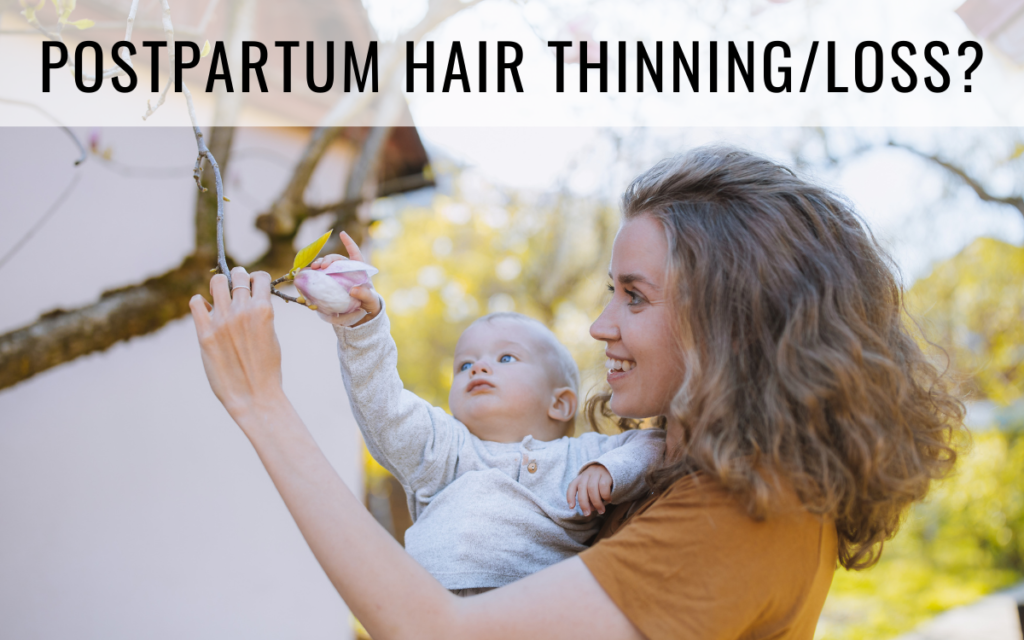
If you’re a mother, going to be one, or even just thinking about it, you might be familiar with postpartum hair loss. As if you weren’t already pulling your hair out, now it’s just falling out!?! You’ll have more than enough stress, so don’t worry about hair loss because there’s a way out that doesn’t require surgery.
Why Am I Losing Hair?
Pregnancy and childbirth make changes to your body. Some of those changes involve hormones like estrogen that actually make your hair thicker during pregnancy, with more hair follicles in their growth stage. Estrogen protects from hair loss, so when levels go back to normal levels after childbirth, all those hair follicles stuck in the growth phase shift into the shedding phase. This should happen in the first half year after giving birth. It might not happen to everyone, but it is completely normal. Because these changes are caused by the hormones from having a child, they’re thankfully temporary, and the shedding stops within another half year. If your hair isn’t back to normal within a year of giving birth, you should consult your physician.
How Do I Deal With Postpartum Hair Loss?
There are many types of hair loss, and many solutions for them. Thankfully you won’t need anything as extreme as hair transplant surgery, since the problem isn’t that severe. To deal with hormonal issues, PRP therapy uses proteins called “growth factors” that encourage growth and healing. These were originally used for injuries, but also showed promise for joints, tendons, and hair growth. Research now shows that PRP does treat hair loss effectively, so it’s a great solution for postpartum hair loss since it’s hormonal.
What is PRP Therapy?
Platelet-Rich Plasma (PRP) is a fluid made from a sample of a patient’s own blood. The blood is placed in a centrifuge where it gets separated into three parts: the red blood cells, the platelet-rich plasma, and the platelet-poor plasma. The PRP can then be extracted to inject back into the patient’s scalp. The growth factors in the PRP accelerate healing and stimulate the follicles to go back to their growth phase. The whole procedure is painless thanks to topical anesthetics. Busy mothers can start dealing with hair loss during a lunch break, and will see results within a few months.
There’s nothing fun about the body changes from childbirth, but thankfully hair loss won’t be permanent. If you’re suffering from postpartum hair loss, schedule a consultation with Dr. Imami to learn more and find out if PRP is right for you.
